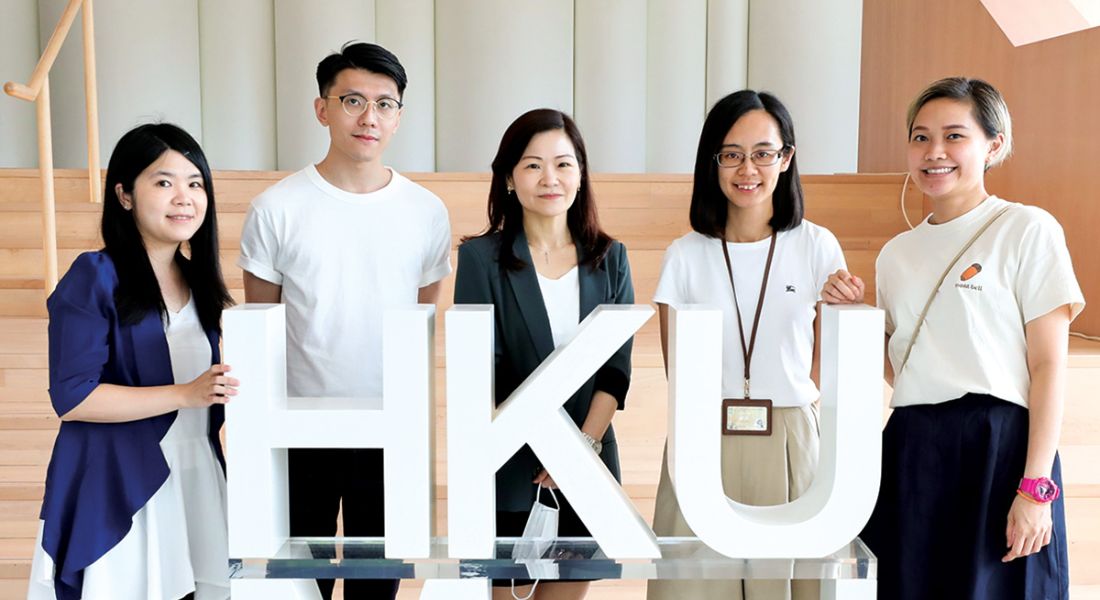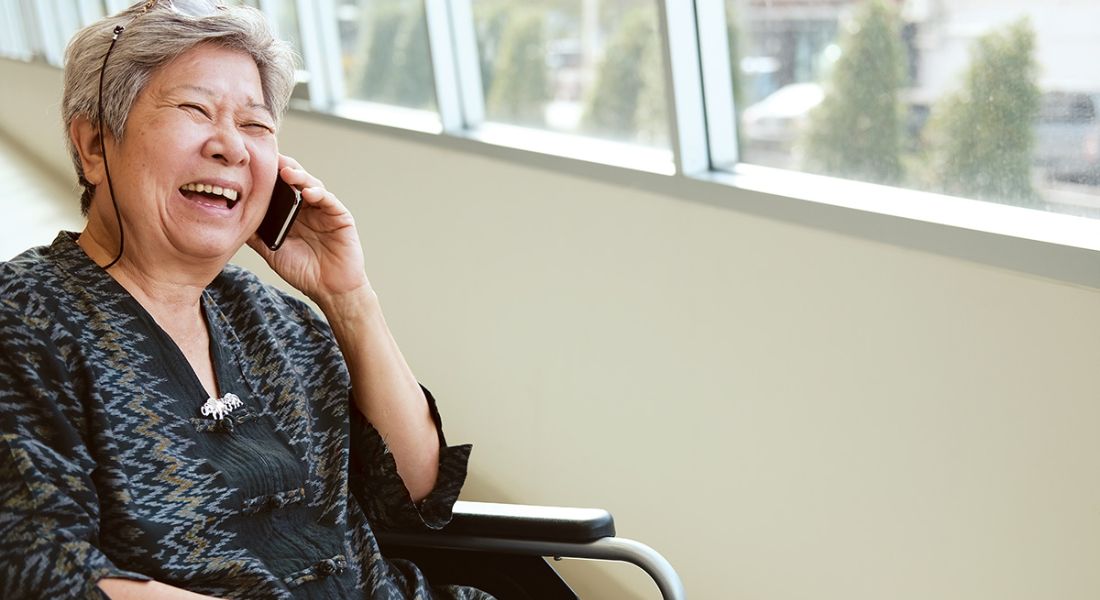Telenursing Helps Isolated Older Adults Survive Social Distancing
Professor Doris Yu | Professor
Ms Carol Lam | Nurse
Mr Samuel Tam | Nurse
Ms Capy Chan | Nurse
Ms Carmen Hung | Nurse
The social distancing strategies introduced to contain COVID-19 may be effective at controlling the pandemic, but they can also reduce social support for older adults. The impact is particularly significant for those who live alone or live only with their spouse. Some were afraid to leave their homes during the acute period of the pandemic outbreak, even in some cases for medical appointments. The closure of non-essential aged care services further limited their access to care. Although the aged care sector responded rapidly to deliver services online, many elderly remain on the wrong side of Hong Kong’s digital divide, which means they do not have the means or know-how to access this service.
To address the problem, the School of Nursing has adapted its innovative “Jockey Club Nice-Link Project”, which is supported by the Hong Kong Jockey Club Charities Trust, to the demands of social distancing.
The original aim of the project was to bring nurses, social workers, and volunteer health coaches (people at aged 50+) together to reach out to socially isolated older adults and support their health and functional well-being. The nurses have been developing person-centred care plans guided by the World Health Organization’s ICOPE Model, while volunteers have been empowered to deliver the care using a case management approach.
With the COVID-19 outbreak, all in-hall and in-person activities had to be stopped, so our nursing team transformed the project into a telenursing model with two main components: nurse-led case management and volunteer-led caring support. The revised model was launched in early February to support 200 socially isolated older adults.
For nurse-led case management, the nurses conducted a systematic health review of the older adults through telephone visits. Various health problems were prevalent among the group, including poor awareness of personal and environmental hygiene, inadequate protective resources, physical inactivity, poorly controlled pain, insomnia, loneliness and depressed mood, and they were worried about refilling their medications and rescheduling medical appointments. Some of them even delayed seeking medical care after fall injuries.
Our team provided these participants with prompt health advice and distributed a set of eight illustrated education leaflets that nurses had developed to guide health-related self-care management. Referral to social workers was arranged as appropriate. We also provided in-person visits at the door gate for older adults who had more serious health problems.
The volunteer-led support crew provided regular phone calls to the socially isolated older adults to support their mental wellness. They were trained to understand the health problems of socially isolated older adults, through an online series developed by the nursing team. The volunteers then worked in small groups supported by a nurse and were encouraged to participate in an online chatroom to enhance the nurse-volunteer interface in providing care.
Thus far, the telenursing model has been a great success. We have been able to not only address prominent geriatric symptoms and enhance chronic disease management among socially isolated older adults, but also enhance their infection control practice for COVID-19.
The participants expressed great appreciation to our nursing team and reported a greater sense of security as a result of contact from the nurses and volunteers. The telenursing model also managed to keep volunteers motivated. As volunteers are becoming an increasingly important asset for supporting the aging population, every effort is needed to secure this social capital even under the pandemic threat.
The HKU nursing team will continue to transform every challenge into opportunity in promoting the betterment of seniors in the community.



